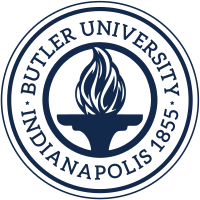I often hear educators say they want their students to be "life-long learners" or "life-long readers". When they say this to me I always ask them:
How do your students know
you are a life-long learner? A reader?
I've seen many examples of this as I've been in and out of classrooms over the past decade, but can't really remember any from my
own years in school.
Here are two of my favorite examples:
That moment when students find their teacher's blog! ( I LOVE this one.)
( I don't remember the teacher's name or even the school, I wish I did, it had such an impact on me.)
I happened to be in the classroom at one of the
New Tech school's in Indiana when students randomly googled their teacher and came across his blog. They were reading each and every post like vultures! and were rapidly quoting it and firing off questions to the teacher.
"Wait, you are in college? I thought you already went to college, you are a teacher? You still go to college? Why do you go to college?"
"Hey, I think this story is about me, is it about me? You learned about teaching from me?"
"People write back to you on this thing? Who are these people? Teachers?" "Do you know them?"
WHAT an example of not only life-long learning, but sharing his learning! The discussion that followed about learning, blogging and sharing was incredible.
Here is another, I've shared this one before, but I just love it for modeling life-long reading...
Amy Blackburn (@zebramommy1 ) teaches at a high school that has what we called at the elementary school "DEAR" or drop everything and read time. I
think it is once a week, but it could be once each day. The teachers are to join the students in reading and resist the urge to use those few minutes to clear their desk, grade, plan etc...! I always noticed that Amy always kept her current book spine out on her desk.. Many times when I stopped by her room she was chatting about that book with a student. Several students chose the books she chose, followed the authors she followed and had great conversations with her around literature or life events. I vividly remember her discussing
Nineteen Minutes by Jody Picoult with a group of students. This conversation dipped into school violence, suicide, tolerance, recovery...so many topics! Amy teaches
Project Lead the Way courses, in Bio-Medical Science and as far as I could tell she reads mostly fiction. I love the relationships she had with students that were developed over the love of reading in addition to the ones she developed over exploring science.
There are a million little subtle ways to share that you are a learner, most of the time this seems to be woven in to the side conversations we have in the hall with students about the weekend.
I wonder if anyone is deliberate in the attempt to model that they are a learner? When I was a classroom teacher, I wasn't deliberate, about it, although anyone who has taught with me knows I share a lot with my students, so I'm certain it happened in some small ways. I'm confident I've modeled it for our own children, they see me read & discuss education pedagogy, they see the stacks of books all over our house, they hear their dad say over & over "Seriously, we should own stock in Amazon, what did you download now?" They remember when I was working on my master's degree, watched me learn to knit using YouTube and the standard answer to most questions at our house is "You can figure that out" followed by "Google it".
So, how do your students know you are a life-long learner? Principals, how do your teachers know you are a lifelong learner? Please share!


















.jpg)


